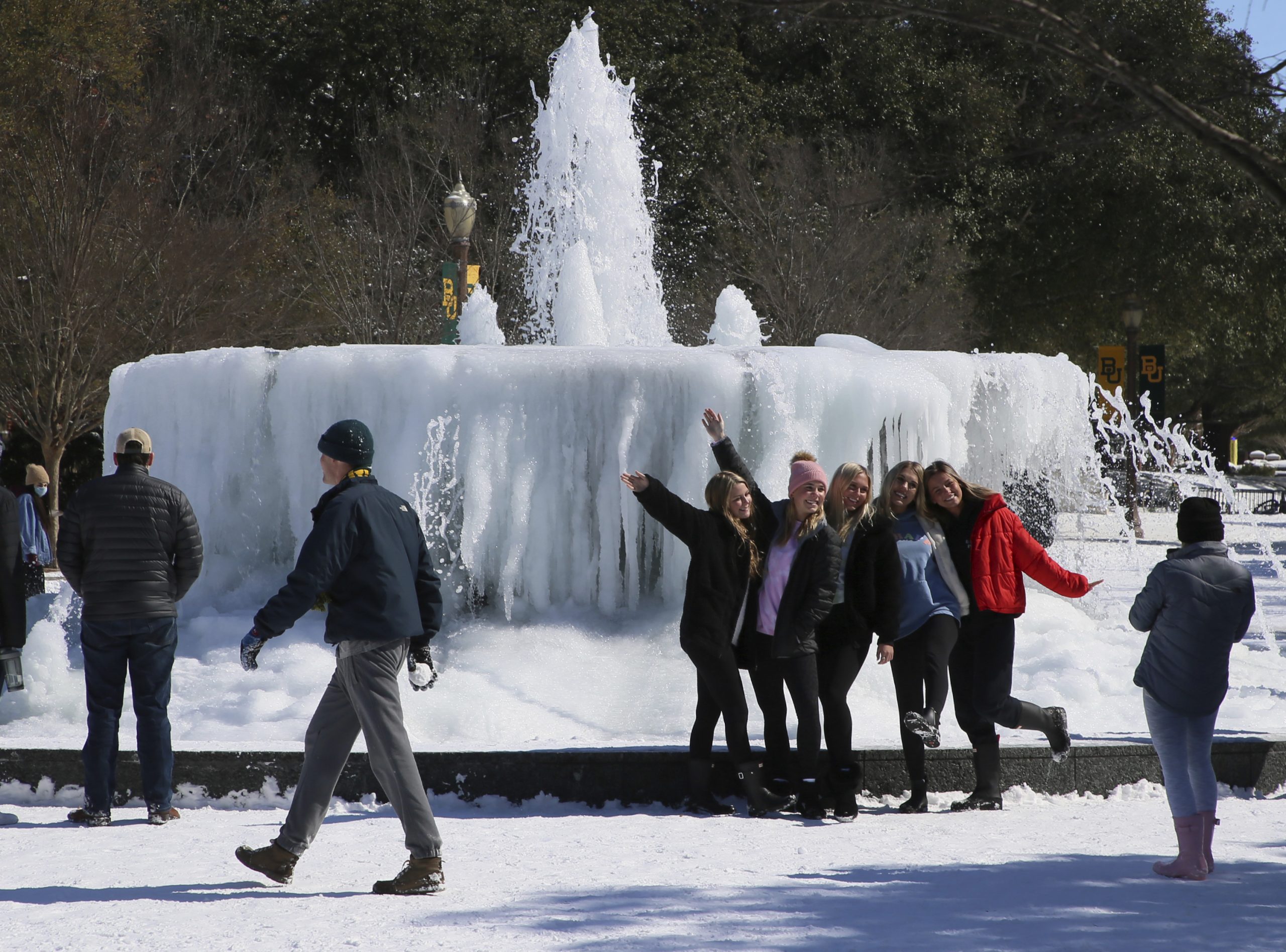President Biden says he hopes to visit Texas next week as hundreds of thousands of homes remain without power, and the state deals with water shortages and the fallout from a winter storm that has claimed more than 50 lives.
The White House said federal agencies have delivered 60 generators, more than 60,000 blankets, and 729,000 liters of water. But pressure is mounting on Biden to see for himself how the Lone Star State is struggling to cope.
On Friday, Biden said he hoped to visit once his presence would be less of a burden to emergency services, but the timing had yet to be worked out. “I plan to go,” he told reporters at the White House.
Veteran Democratic strategist Hank Sheinkopf said: “It will be a test of his capacity to do what he said he was going to do, which is to be the president for all people, whether it is red states or blue states, Democrats or Republicans.”
“He has to show up in Texas,” he added, “and he needs to come with an aid package that is significant.”
WHY COAL AND GAS WENT OFFLINE DURING TEXAS WEATHER CATASTROPHE
Management competence and personal empathy were two of Biden’s key campaign themes last year, promising to replace the chaos of a Trump administration that was accused of politicizing aid.
The weather emergency in Republican Texas, where extreme cold triggered one of the worst power outages in U.S. history, provides an early test of the new president’s leadership.
Biden’s team was criticized on Thursday by some on the Right for calling a press “lid,” meaning reporters would not see the president that day, at 8 a.m. as the same winter storm moved over Washington, D.C.
The White House press secretary later said the “footprint” of a presidential visit to Texas would pose problems.
“It can take up resources. It can take up, you know, the time and energy of police and security,” she said. “And so those are factors that we consider as we determine when and where he will visit.”
Instead, she said he was receiving frequent updates so that he could make rapid decisions when needed.
“Jill and I are keeping Texas, Oklahoma, and other impacted states in our prayers,” Biden wrote on Twitter. “I’ve declared states of emergency, authorized [Federal Emergency Management Agency] to provide generators and supplies, and am ready to fulfill additional requests.”

The White House said he spoke with Gov. Greg Abbott on Thursday evening to offer further federal assistance and convey his support to the people of Texas.
For now, much of the anger in the state is directed at local leaders. GOP Sen. Ted Cruz was forced to fly back from a hastily arranged family trip to Cancun as public outrage mounted. And officials are scrambling to explain why the state’s power grid was not properly upgraded to protect against extreme temperatures.
Staying away for now leaves pressure on the state’s Republican leadership. But Biden’s advisers will also know that their response can shape perceptions of the administration for the rest of its term.
As conservative commentator Bill Kristol put it on Twitter: “An administration’s reaction to an unanticipated event can help define it – eg, air controllers or Katrina. What of Texas? Abbott’s ineffectual, Cruz in [Cancun]-–could a strong Biden response be a key moment (and do good!)?”
Hurricane Katrina became a defining issue for President George W. Bush amid widespread criticism that his administration failed to prepare for or respond to the emergency.
It did not help that he remained on vacation in Texas for a day after the hurricane struck New Orleans. He flew over the area in Air Force One as he returned to Washington, and cameras caught the moment when he said, “It’s totally wiped out.” The lasting image was of a leader who was out of touch.
CLICK HERE TO READ MORE FROM THE WASHINGTON EXAMINER
Last year, President Donald Trump visited California, which was hit by weeks of wildfires, toured tornado-hit Tennessee, and took a trip to the site of a devastating “derecho” in Iowa, visits in which he met families affected by the disaster, received updates from officials, and praised emergency workers.
But he was also accused of deciding to award federal aid according to whether a state supported him or not. In 2019, he threatened to halt assistance to California unless the state’s Democratic leaders “got their act together,” although he quickly backed down.

